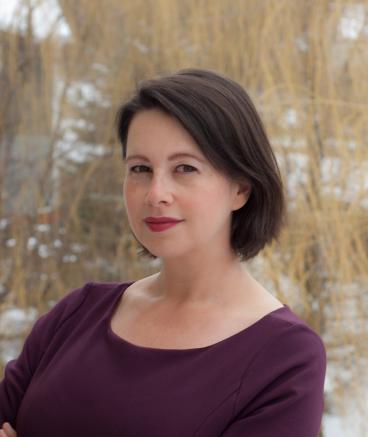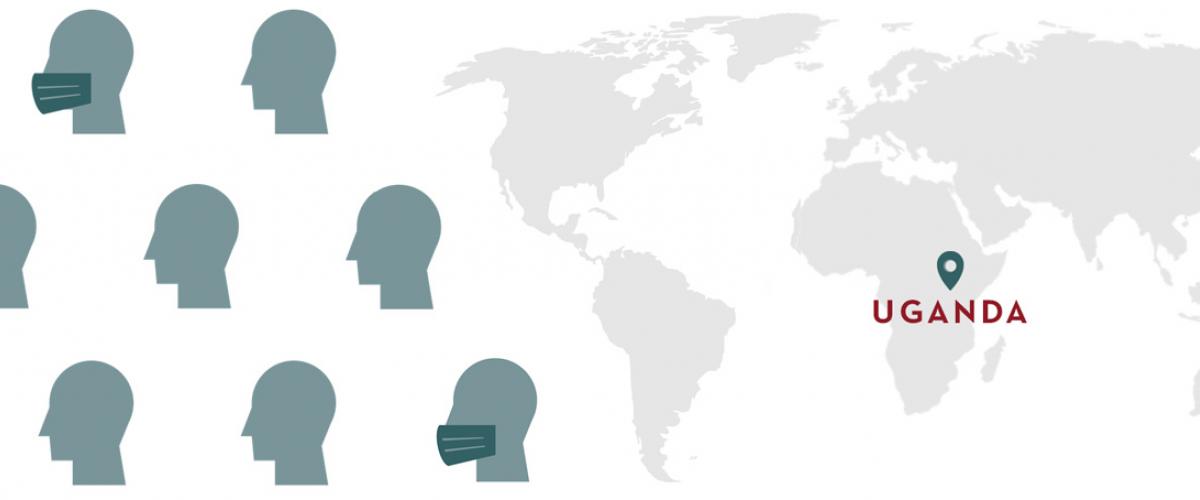Updates from the Field: Shanna Miko, CGHSR Scholar
Shanna Miko, a 2019-2020 CGHSR Scholar for Refugee and Population Health, shares her experiences dealing with the impacts of the COVID-19 pandemic and what it means for her work as a CGHSR scholar in Uganda.

As a CGHSR Scholar in Refugee and Population Health, I was working in Kampala, Uganda, collaborating with the UN International Organization for Migration, the CDC, and the Bureau of Population, Refugees, and Migration. I am working on projects to maximize refugee health outcomes in the United States Refugee Admissions Program. These projects include expanding the capacity of the nursing staff through standardizing nursing practice and developing permanent health education and developing and operationalizing a standardized health and hygiene curriculum for resettling refugees.
I was living in Uganda for 6 months before the COVID-19 pandemic made its way to impact our corner of the world. For a week or two, I had been receiving email updates from the US Embassy in KLA as well as multiple communications from the CGHSR, the SPH, and the SON. As the pandemic evolved, so did the decisions being made each day. One day, we were in agreement that I would stay and continue to work, and the next day, those decisions were out of our hands as all students needed to return to the US. I was on my way to Amsterdam 36 hours after I received the order to leave Kampala and returned home 6 days before they closed the Entebbe airport and Ugandan borders.
Before I left I was able to contact my stakeholders and colleagues in KLA and update them. We were just 3 weeks away from the pilot implementation of one of our projects, that would clearly have to wait. Fortunately, one of the projects we were implementing involved utilizing a learning management system, such as Canvas, to operationalize permanent health education and practice standards. This meant, for the next few weeks I would work remotely tweaking the project so that the pilot could be implemented remotely and asynchronously if necessary. I was lucky to have spent my time there working alongside the nurses at the project sites, gathering information, developing prototypes, receiving feedback and edits, and iterating. Not only was I able to get enough material to continue working remotely, but I was able to build relationships with my colleagues that allow us to communicate easily over email and Whatsapp. As for my other project regarding health and hygiene education for resettling refugees, this pandemic further highlights the importance of that work, as well as adds a few more areas of development.
Since I left KLA, the president and Minister of Health have issued restrictions to minimize the spread of the COVID-19. Personal vehicles are prohibited, there is a curfew in place, and all non-food vendors are closed. Globally, the resettlement of refugees decreased dramatically, so the migration health assessment center and transit center are closed and my KLA colleagues are working from home. This has its challenges, as the internet and electricity are not as consistent and widely available as they are here. Nevertheless, nurses are known for their ability to innovate and persevere and my friends in KLA are no different.
Working remotely has had its challenges. Coordinating meetings with multiple time zones and varying levels of internet access has not been the most difficult part. It has been hard to find long stretches of uninterrupted time where I can have bursts of productivity. My husband also works internationally, so he is in meetings from early morning until after dinner. Our 2 daughters are now receiving online instruction from their teachers and have required a lot of support during this transition. Not to mention, when all of us are home, we eat a lot of meals. I am finding myself being pulled in multiple directions and sacrificing some of my own priorities to accommodate.
However, I am not discouraged, I know we are all going through this difficult time together, and while the details may differ a little, nobody is having an easy time. I feel confident that the University will continue to find ways to be flexible for students, and I will continue to have the support of my advisor, the CGHSR staff, the SPH, and the SON. And hopefully, we will emerge from this with a bit more humanity, patience, compassion, and wisdom than with which we entered.
—Shanna Miko
Updates from the Field
Our Updates from the Field Series features messages from the people around the world that are dedicated to the programs of the Center for Global Health and Social Responsibility.
